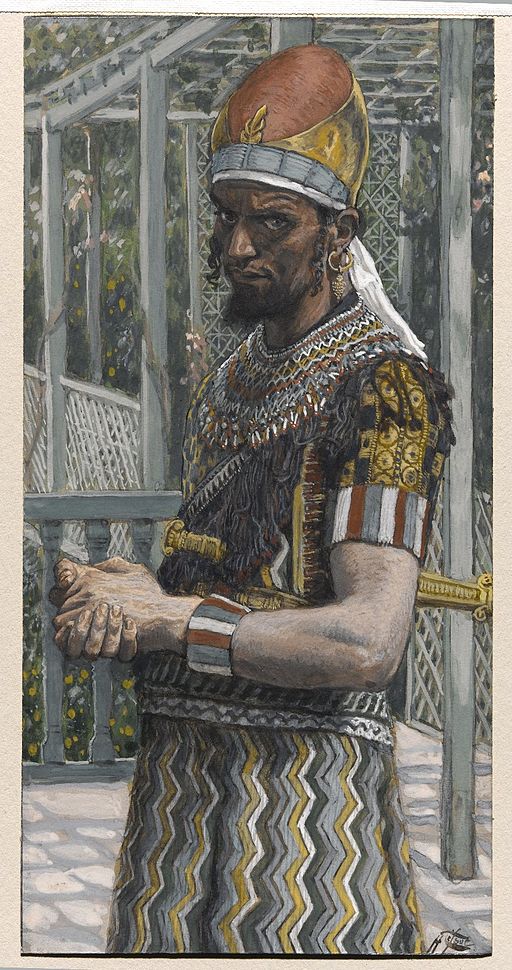What happened next? Herod the Great
 Our celebrations of Christmas may be over but the story of our Lord’s arrival and life continues. As we move further into the New Year John Rackley ends this first series of meditations on what happened next?
Our celebrations of Christmas may be over but the story of our Lord’s arrival and life continues. As we move further into the New Year John Rackley ends this first series of meditations on what happened next?
He imagines what a teacher of the Law in Jerusalem might have dared to think about Herod the Great who was only a few years from death when Jesus was born.
I turned my back on the Temple and made my way through the crowded streets. It would soon be the Sabbath and I wanted to be in my home long before it started. I had to struggle because there were still visitors gawping up at the Temple walls. I hated the look on their faces. Didn’t they know the cost in human life this building had exacted just because of one man’s desire?
Poor Herod; how he longed to be accepted. How he longed for the early days to return. The crowds would eagerly pour out onto the streets in welcome when he came visiting Jerusalem. Not now. Now they had to be dragged out. Now they had to be bribed or beaten before they would sing his praises. Now there was too much brutality. Too much fear. Too much oppression.
We always expect our rulers to oppress us with their ‘do this’ and ‘do that’; ‘come here’ and ‘go there’. Herod was no different, now it was too much.
“I will give them my peace”. That’s what he used to say to us when he gathered us to hear our latest interpretation of the scriptures.
“I just want to give them a peace that no one else can give.
My peace. Herod’s Peace.
Peace with Rome. Peace with their army and their emperor. Pax Herod.
I just want them to walk my roads; watch my games; gape at my palaces; respect you readers of the ancient ways and above all worship in the Temple”.
Poor Herod; peace – there is no peace. We could have told him that. The old prophets knew there was no peace based on the gods of men. But he wouldn’t have listened. When he was young he would laughed at us. Now he would probably have our tongues cut out. Now we say what he wants to hear, even when it might mean death for others.
Poor Herod; he is old and cannot see any future. He has only a past and a legacy to complete. No one must stand between him and how he will be remembered. No matter what their age or how innocent. They go like sheep to the slaughter. They make no sound. And even the tears dry on the cheeks of those mourn when the shadow of Herod passes by.
He is no fool but he is deluded by power. He knows Lord but Augustus. He seeks no greater power than his own.
Poor Herod.
Picture: Herod the Great/James Tissot/Wikimedia Commons
John writes about this meditation and adds some suggestions for further reflection and prayer in his blog: www.windingquest.wordpress.com and can be contacted on jcr49@hotmail.co.uk
Baptist Times, 19/01/2016